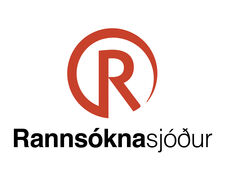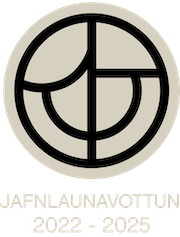SNPfish: SNP development for commercially important fish species - verkefni lokið
Fréttatilkynning verkefnisstjóra
Here we have developed new SNP genetic markers and used previously published SNP markers to create SNP genetic markers set for both Mackerel and Herring for assessing genetic population structure in these species, which is currently unknown in the North Atlantic.
Assessing
population genetic structure for individual assignment of fisheries samples to
stock in highly migratory pelagic species like Herring and Mackerel is
complicated task that depends on reliable sampling of spawning fish and genetic
markers that can discriminate between potential stocks. Here we have developed
new SNP genetic markers and used previously published SNP markers to create SNP
genetic markers set for both Mackerel and Herring for assessing genetic
population structure in these species, which is currently unknown in the North
Atlantic. For Mackerel result show very low genetic differences between
potential spawning stocks in the East Atlantic collected in Bay of Biscay
(France and Spain), west of Ireland and the North Sea. However genetic
differences were detected between samples collected in East and West Atlantic
(Canada and USA) indicating two stocks in the North Atlantic. Individual
assignment of fisheries samples to spawning stocks were poor for samples in the
East Atlantic and not very reliable, because of low genetic differences between
spawning samples. For western samples individual assignment were stronger since
most of samples from USA 2012 were assigned to baseline sample from Canada from
2012. Unexpected results were found for fishery sample from Canada from 2015,
as these samples were not assigned to Canada 2012 and were assigned to Eastern
baseline populations. This indicates hybridization between Western and Eastern
stocks of Mackerel after 2012, which is highly possible based on extensive
migration of Mackerel to the west in recent years. For Herring result show high
genetic differences between potential spawning stocks. Over all there is two
main stocks in the North Atlantic composed of the western spawning group (Iceland,
Faroe Island and Scotland) whereas the second group is composed of spawning
groups from Norway. Further delineation show that the Scottish samples are
different from Iceland and Faroe Island and for the Norwegian cluster
Landvikvatnnet differ from the other. Individual assignment to spawning stock
were successful for the fishery samples that were tested. This study shows for
the first time that there is population structuring among the Icelandic spring
spawning herring (ISSH) and Norwegian spring spawning herring (NSSH).
These results show that there is high likelihood that further development of SNP markers for Herring would result in better discrimination of spawning stocks and successful assignment of fisheries samples to spawning stocks.
The project and some of its results have been presented to our partners at Síldarvinnslan, Neskaupstað. Further presentation of results from the project to stakeholders and the scientific community are planned.
One manuscript, Helyar et al. titled: Population structure of North Atlantic mackerel (Scomber scombrus) and the composition of feeding aggregations around Iceland, has been submitted to ICES Journal of Marine Science and has been accepted with revisions that are under way.
Other manuscript in preparation.
Genetic evidence of extensive migration of Eastern Atlantic Mackerel (Scomber scombrus) to west and hybridization with Canadian Mackerel stocks.
Stock structure of Atlantic herring (Clupea harengus L.) in the Norwegian Sea and adjacent waters using single nucleotide polymorphism (SNPs).
Stock structure of herring (Clupea harengus L.) in North Atlantic and accuracy of assignment of individuals from fisheries to spawning stocks.
Heiti verkefnis: SNPfish:
SNP development for commercially important fish species
Verkefnisstjóri: Sarah Jane Helyar
Tegund styrks: Rannsóknastöðustyrkur
Styrkár: 2013-2015
Fjárhæð styrks: 19,47 millj. kr. alls
Tilvísunarnúmer Rannís: 130871


